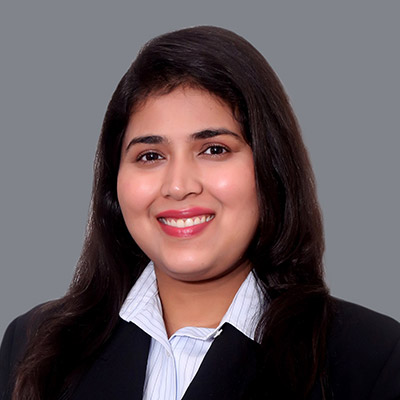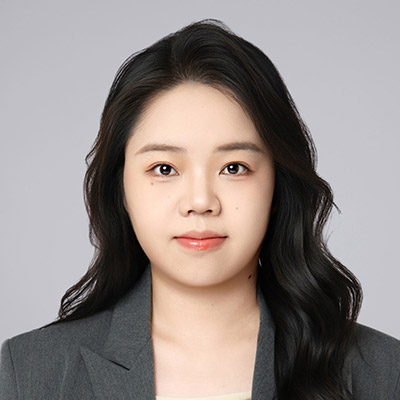These new colleagues allow students, faculty members, and community partners at the Centre for Global Studies to acknowledge and participate within a broader community of scholarship.
The Centre for Global Studies is deeply proud and honoured to announce the appointment of the following four scholars as Adjunct Professors to the Centre of Global Studies:
Dr. Randa Farah, Associate Professor, Department of Anthropology, Western University
Dr. David Kanatawakhon–Maracle, Lecturer, First Nations Studies Program, Western University
Dr. Verónica Schild, Professor Emeritus, Department of Political Science, Western University
Dr. Prachi Srivastava, Associate Professor, Faculty of Education, Western University
Dr. Mark Franke, Director of the Centre for Global Studies, explains that “each of these scholars are engaged in critically–oriented interdisciplinary research, writing, community–based actions, and teaching that relate richly with academic programs offered by the Centre for Global Studies.” According to Dr. Franke, in accepting these appointments, “these new Adjunct Professor colleagues allow students, faculty members, and community partners at the Centre for Global Studies to acknowledge and participate within a broader community of scholarship.
In their positions as Adjunct Professors, Drs. Farah, Kanatawkhon–Maracle, Schild, and Srivastava will have opportunities to provide mentorship and inspiration to our students, both within and beyond the classroom. The broader Huron community will be invited to attend public events, involving the Centre’s new colleagues and engaging the social and intellectual issues at stake, respectively, in their scholarly works and public activities.
In addition to her faculty appointment in the Department of Anthropology at Western University, Dr. Randa Farah has a long history of involvement in the Refugee Studies Centre at the University of Oxford and has taught also in York University’s Centre for Refugee Studies. The core of her research is engaged with displaced Palestinian populations, focusing on questions of history, memory, and identity and Palestinian struggles for self–determination. Relatedly, Dr. Farah studies national liberation movements amongst displaced Sahrawi people in Saharan Africa. And she is now drawing lessons from her Palestinian and Sahrawi work to conduct broader comparative analysis on questions of self–determination and ongoing anti–colonial struggles.
While Dr. David Kanatawakhon–Maracle’s current appointment at Western University is with its First Nation Studies program, he has a long history of teaching also in Western’s Department of Anthropology and broadly across Brock University’s Aboriginal Studies program. In all cases, Dr. Kanatawkhon–Maracle has been a teacher of Iroquoian languages and traditional culture. Across his career, Dr. Kanatawkhon–Maracle has been a truly leading figure and community–based scholar in the development of materials—including dictionaries, textbooks, and other pedagogical tools—in the teaching of both Mohawk and Oneida languages.
Dr. Verónica Schild studies forms of neoliberal “governance” and of political resistance, with a particularly strong focus on Latin America, and on feminist political movements and issues of gender. This is part of a longstanding project of conceptually untangling what it means to take gender seriously as a key category for grasping neoliberal states. In light of the stunning levels of environmental destruction, dispossession, and violence linked with neoliberal extractivist capitalism in Latin America, she is returning to key contributions in critical theory, including work by/and on Marx and the environment, historical materialism, and socialist feminist debates on social reproduction. The aim is to contribute to the reformulation of a critical Latin American feminism that places the ecological dimension at its core.
Dr. Prachi Srivastava is Associate Professor and Chair of the Critical Policy, Equity and Leadership Studies ARC at Western University’s Faculty of Education. She is also Adjunct Professor, School of International Development and Global Studies, University of Ottawa, and Visiting Senior Fellow, Centre for International Education, University of Sussex, UK. Dr. Srivastava gives rich attention to the ways in which state and non–state actors structure and constrain the education “policyscape” in the Global South, and the impact of this on education access and inclusion for disadvantaged groups and the right to education. She is recognized as coining the term ‘low-fee private schooling’, and has been invited to provide research evidence to a number of agencies and groups, including the British Government’s All-Party Parliamentary Group on Global Education for All, European Commission, Japan International Cooperation Agency, UNESCO, and the World Bank.




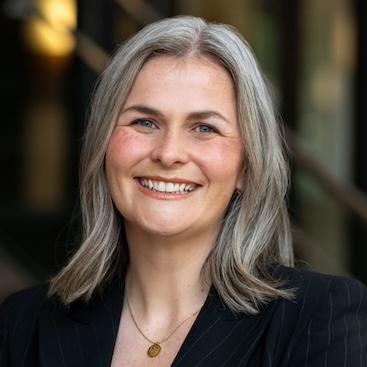
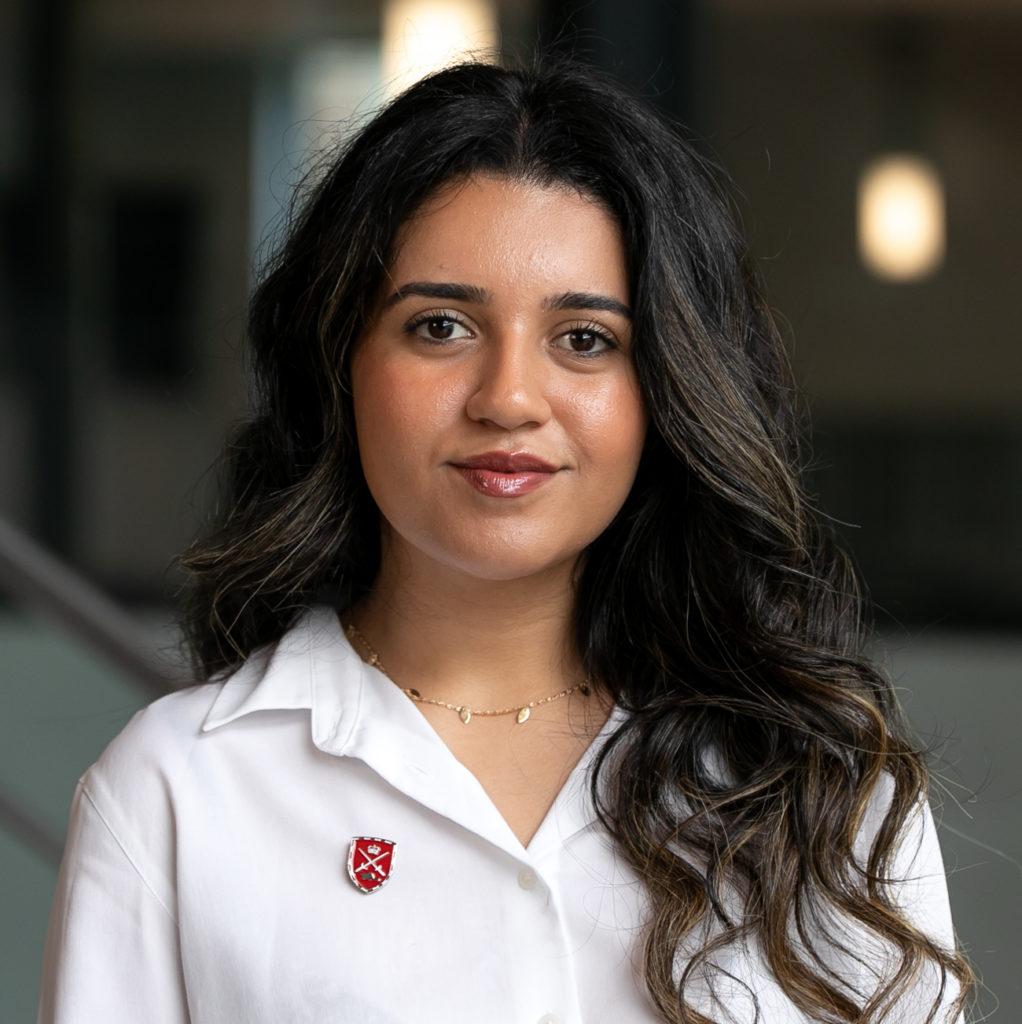
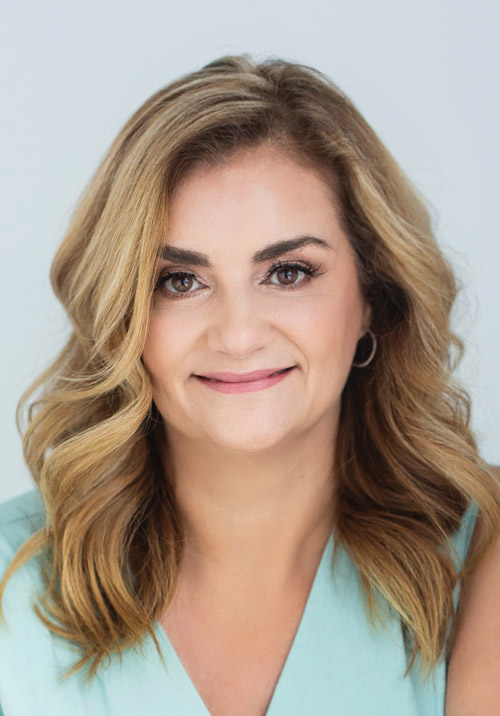 Lisa Jones Keenan is the Vice President of Sales at Xplornet Communications, the largest rural fixed wireless broadband service provider in Canada.
Lisa Jones Keenan is the Vice President of Sales at Xplornet Communications, the largest rural fixed wireless broadband service provider in Canada. 
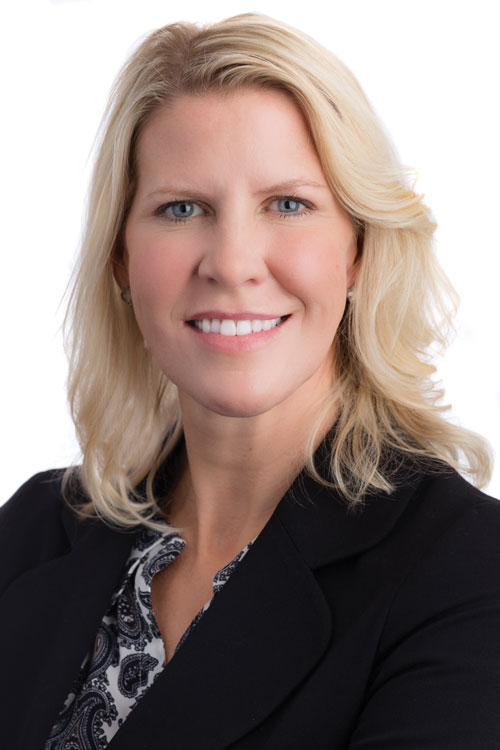 Leigh Allen is the AVP, Global Strategic Research, Reinsurance Group of America Inc., one of the world’s largest global life and reinsurance companies.
Leigh Allen is the AVP, Global Strategic Research, Reinsurance Group of America Inc., one of the world’s largest global life and reinsurance companies.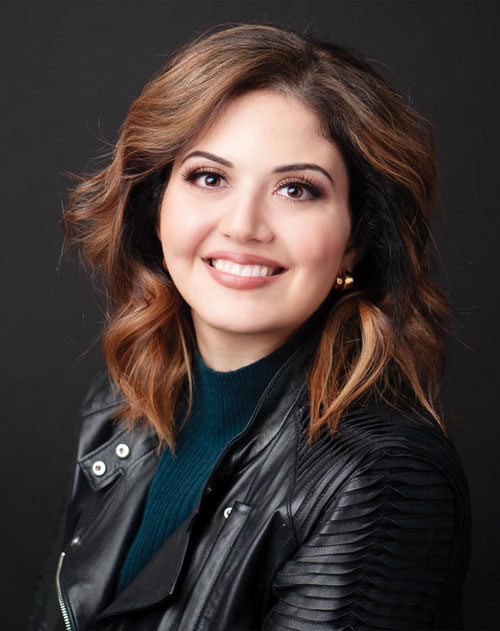 Yola Ventresca is a Managing Partner, Lerners LLP, Secretary of Huron’s Board of Governors and a Huron Class of ’02 alumni. Selected as one of Canada’s “Best Lawyers,” she is passionate about the value of Liberal Arts in helping students succeed in their careers.
Yola Ventresca is a Managing Partner, Lerners LLP, Secretary of Huron’s Board of Governors and a Huron Class of ’02 alumni. Selected as one of Canada’s “Best Lawyers,” she is passionate about the value of Liberal Arts in helping students succeed in their careers.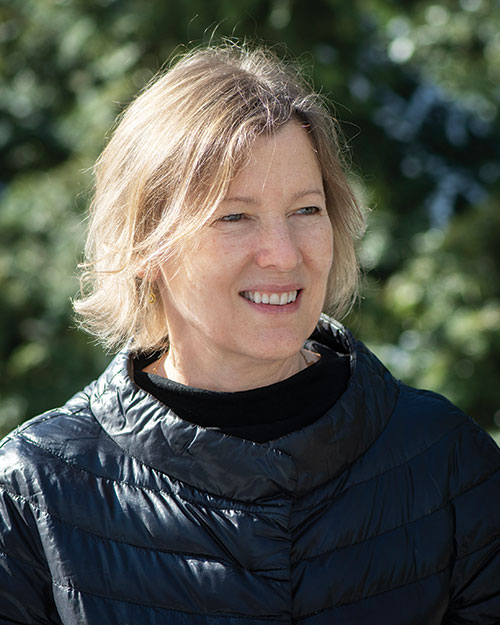 Susan Farrow is an Assistant Professor in The Temerty Faculty of Medicine at the University of Toronto and a Founding Partner and Co-Director of The Toronto Institute of Group Studies, an organization offering certified training and education in group leadership.
Susan Farrow is an Assistant Professor in The Temerty Faculty of Medicine at the University of Toronto and a Founding Partner and Co-Director of The Toronto Institute of Group Studies, an organization offering certified training and education in group leadership. 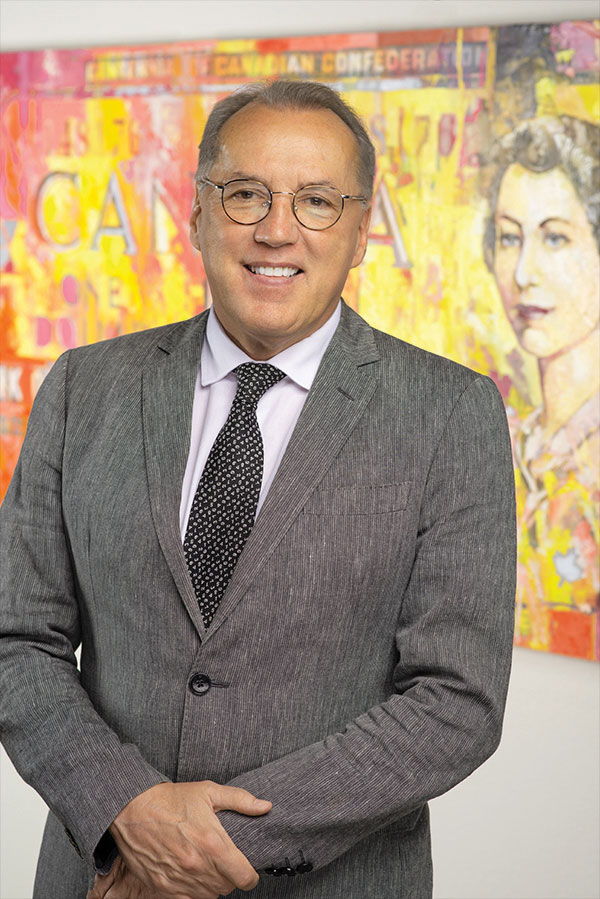 Frank Holmes is CEO and Chief Investment Officer of U.S. Global Investors, as well as a business commentator, philanthropist and Huron Class of ‘78 alumnus. Holmes also serves as the Executive Chairman of HIVE Blockchain Technologies, the first cryptocurrency mining company to go public in 2017.
Frank Holmes is CEO and Chief Investment Officer of U.S. Global Investors, as well as a business commentator, philanthropist and Huron Class of ‘78 alumnus. Holmes also serves as the Executive Chairman of HIVE Blockchain Technologies, the first cryptocurrency mining company to go public in 2017.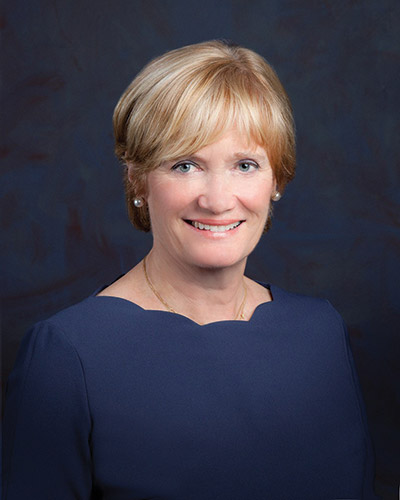 Kelly Meighen is an experienced philanthropist and volunteer. In her role as president of the T.R. Meighen Family Foundation, she has created a legacy of volunteerism and philanthropic giving in the areas of youth mental health advocacy, environmental conservation and cultural vibrancy.
Kelly Meighen is an experienced philanthropist and volunteer. In her role as president of the T.R. Meighen Family Foundation, she has created a legacy of volunteerism and philanthropic giving in the areas of youth mental health advocacy, environmental conservation and cultural vibrancy. 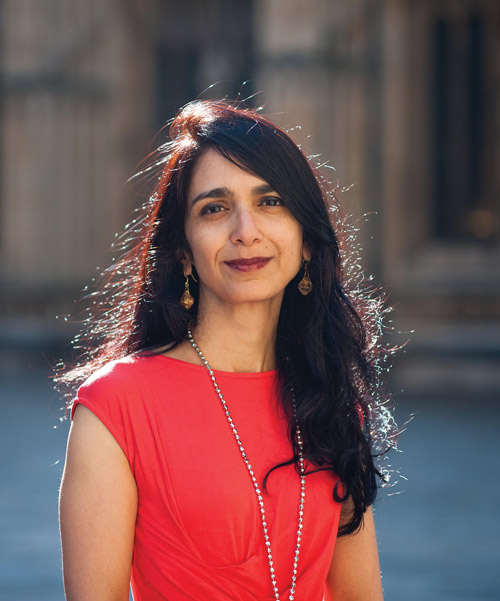 Ranjita is Executive Chair of the Oxford Global Partnership, advising investors, businesses, family offices and entrepreneurs on sustainable, inclusive and responsible value creation. A Business Fellow at Oxford University’s Smith School, Ranjita engages with companies on pursuing value with values, and teaches a postgraduate “Essentials of ESG & DEI” course.
Ranjita is Executive Chair of the Oxford Global Partnership, advising investors, businesses, family offices and entrepreneurs on sustainable, inclusive and responsible value creation. A Business Fellow at Oxford University’s Smith School, Ranjita engages with companies on pursuing value with values, and teaches a postgraduate “Essentials of ESG & DEI” course.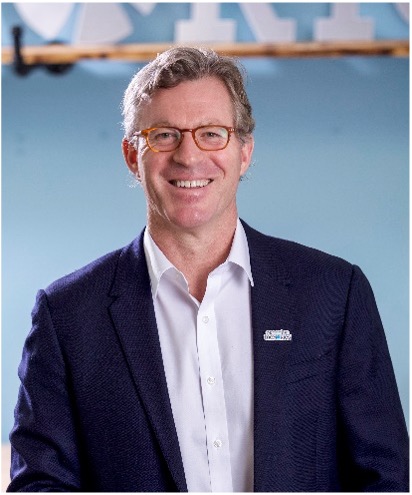 Caleb Hayhoe is the Founder & Chairman of Flowerdale Group and a Huron Class of ’85 Alumnus. Flowerdale Group is a Hong Kong based family office with a global investment outlook across public markets, real estate and private investment. Hayhoe previously spent over ten years building a global sourcing business together with an exceptional team, and remains committed to entrepreneurialism and helping great ideas become sustainable companies.
Caleb Hayhoe is the Founder & Chairman of Flowerdale Group and a Huron Class of ’85 Alumnus. Flowerdale Group is a Hong Kong based family office with a global investment outlook across public markets, real estate and private investment. Hayhoe previously spent over ten years building a global sourcing business together with an exceptional team, and remains committed to entrepreneurialism and helping great ideas become sustainable companies.
